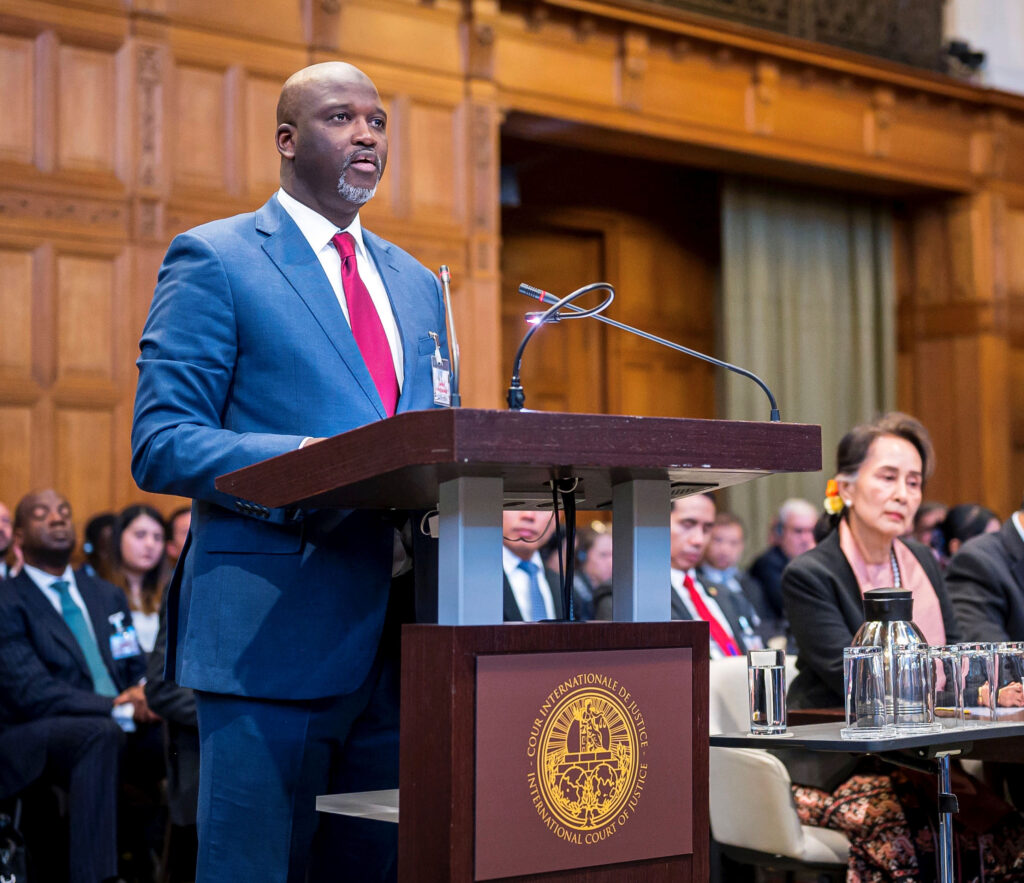
Abubacarr Tambadou, who just stepped down as Gambia’s attorney general, was the right man at the right time for the country’s democratic transition. His tenure helped Gambia confront a legacy of abuse and his departure should not slow that progress.
Tambadou was the architect of Gambia’s far-reaching transitional justice policy, which has featured a dynamic truth commission examining crimes committed under the exiled former dictator Yahya Jammeh, an inquiry to recover Jammeh’s ill-gotten assets, and a draft constitution more protective of human rights.
He defended women who came forward to accuse Jammeh of raping them, helped the United States arrest one of Jammeh’s alleged “death squad” soldiers, and made clear that if Jammeh tried to return to Gambia he would be arrested on atrocity charges.
In his resignation speech, Tambadou predicted that Jammeh “will be brought to account someday here or abroad.” Under Tambadou’s leadership, Gambia rejoined the International Criminal Court and ratified core human rights treaties.
Human Rights Watch hasn’t always agreed with Tambadou. His decision to free some of Jammeh’s hitmen after their dramatic truth commission testimony implicating themselves and Jammeh in a series of murders, caused pain for family members who had just heard their loved one’s killing described, and made them question whether their killers would ever be brought to justice.
But he always listened to Jammeh’s victims, and told them forthrightly why he made his decisions
What made Tambadou truly exceptional, though, was that he stood up for victims of abuse not only in his own country but those thousands of miles away in Myanmar.
Last year, Gambia made the bold decision to address the plight of Myanmar’s beleaguered Rohingya minority by bringing Myanmar before the International Court of Justice in the Hague for committing genocide, a decision that grew out of Tambadou’s personal commitment to atrocity victims.
The move demonstrated international leadership for the rule of law, and a sense of solidarity, uncommon these days.
Thanks to Tambadou and the work of awakened people across the country, Gambia – the smallest country on the African continent – has emerged from international isolation under Jammeh’s rule to speak with a giant voice in defense of global human rights.
By Richard Brody
Reed Brody is Counsel for Human Rights Watch, where he works alongside atrocity victims who are fighting for justice.










Recent Comments